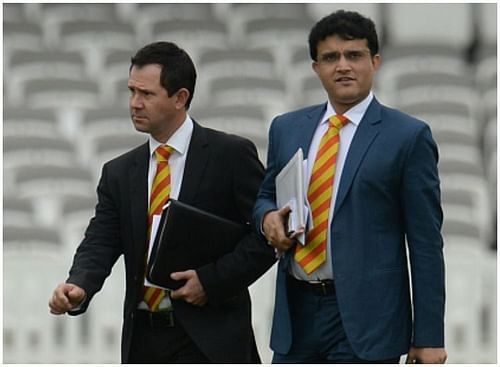
World Cricket Committee proposes shot clock and run-penalty to curb slow over-rates

The MCC World Cricket Committee has put forth the idea of introducing a shot clock to tackle the persistent issue of slow over-rates in the game. The committee has also reaffirmed their view on employing in-game run-penalty to act as a deterrent to teams slowing up the pace of play.
According to data compiled by the International Cricket Council, over-rates are at an 11-year low in Tests and the lowest ever in T20Is. As such, the MCC Committee met at Lord's in order to deliberate on several issues concerning the global game.
Topics ranging from ball-tampering to cricket at Olympics and future of four-day/day-night Tests were discussed at length. However, the teething problem emanating from slow over-rates took centre-stage.
Former captains Mike Gatting, Sourav Ganguly and Ricky Ponting were among the principal members who participated in the World Cricket Committee meeting. ICC CEO Dave Richardson was also in attendance alongside FICA's Tom Moffat and ECB's Sanjay Patel.
Explaining the proposed shot clock, Ponting said, "It is the dead time in the game, so at the end of the over the fielders and the bowlers have to be back in the position and ready to bowl at a certain time. That is non-negotiable. The same with the new batsman coming to the crease - the bowling team has to be ready when the batsman gets there and he has had a certain amount of time."
Various types of penalty have been mooted in the recent past in order to curb slow over-rates. The upcoming season of the Caribbean Premier League will see teams being deducted 0.05 points from their net run-rate if they fail to bowl their quota of overs within the stipulated time period. The World Cricket Committee has proposed a more radical in-game run-penalty to speed up the state of play.
Ponting revealed, "We didn't come to a conclusion about what was right or the wrong, but I would agree that the financial fining of players at the end of the Test match hasn't been actually administered very often certainly through the last 12 months. We are of the belief that maybe a there-and-then run penalty in the game will be certainly definitely worth looking at."
He reasoned, "We imagine then captains will take huge responsibility in making sure that their players are in a position to go through the course of the day if they are not in a position for three or four overs and there are 20 runs, which as we saw last week can be the difference in a Test match."